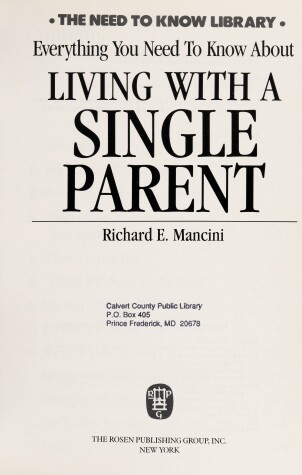Conserving Our World S.
3 total works
This book is one of a series which examines topical issues concerning people and the environment. Each book examines not only the threats posed to the earth, but the international measures taken to protect it. The world's oceans are the subject of this book, which describes their rich resources and examines the increasing pressure on them from humans. The opening chapter describes the vastness of the oceans, their rich resources and the role they play in regulating the world's climate. Then the author examines the many ways in which the seas and oceans are polluted by sewage, domestic waste and industrial waste, including deadly PCBs. The devastating environmental effects of major oil spills, such as the Exxon Valdez disaster in Alaska, are also described. Further chapters examine the responsibility of humans towards conserving marine life - issues such as whaling, overfishing of certain species and the mining of marine minerals. The author also decribes the importance of saltwater habitats, such as the saltmarsh, mangroves and coral reefs.
Finally the reader learns of positive international efforts to clean and conserve the world's oceans, and is encouraged to take part on a personal level. A useful addresses section is included. John Baines is a graduate in geography and a qualified teacher. For ten years he acted as Director of the Council for Environmental Education at Reading University, and also was involved in environmental education with the EEC, Council of Europe and United Nations Environmental Programme. He has written "The Environment" in Batsford's "Past into Present" series, and is the author of "Acid Rain" and "Conserving the Atmosphere" in the "Conserving Our World" series.
Finally the reader learns of positive international efforts to clean and conserve the world's oceans, and is encouraged to take part on a personal level. A useful addresses section is included. John Baines is a graduate in geography and a qualified teacher. For ten years he acted as Director of the Council for Environmental Education at Reading University, and also was involved in environmental education with the EEC, Council of Europe and United Nations Environmental Programme. He has written "The Environment" in Batsford's "Past into Present" series, and is the author of "Acid Rain" and "Conserving the Atmosphere" in the "Conserving Our World" series.
This book presents an analysis of our atmosphere, its attributes, properties and problems. Its basic function is explained as well as its role in governing climatic conditions and protecting the earth from the harmful rays of the sun. Several chapters are devoted to problems created by human activity such as the use of chlorofluorocarbons, the burning of fossil fuels, toxic emissions from vehicles and factories and radioactive leaks. The causes and consequences of the Greenhouse Effect as well as the hole in the ozone layer are explained with diagrams. Further forms of pollution are considered, such as noise and smoking. Suggestions are provided for reducing atmospheric pollution, together with the addresses of many environmental organizations which the reader may want to contact for further information. The author has also written "The Environment" and is the author of "Acid Rain" in the "Conserving Our World" series.
This series examines topical issues concerning the environment. Here, the subject of acid rain is introduced to the young reader - its detrimental effects on rocks, lakes, forests, buildings and people, and the role of prevailing winds and pollution. The author describes how rainwater becomes more acid as a result of air pollution. Measures to reduce the problem are discussed, the author suggesting practical steps we can each take to reduce the risks, such as the reduction or the filtering of emissions of sulphur dioxide and nitrogen oxides. Finally, international attitudes to the problem and encouraging responses towards resolving this problem are discussed. The author has played an active role in environmental education with the EEC, Council of Europe, United Nations Environment Programme and UNESCO. He has also written "The Environment".

